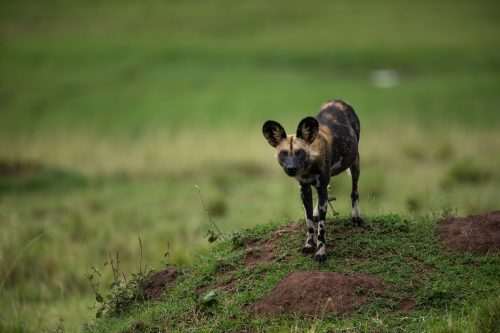
I worked out the other day that I must have done roughly 3000 hours of game drives in the Maasai Mara. That is a lot of driving, sitting, waiting and searching. The result is literally hundreds of remarkable sightings, tens of thousands of photographs and dozens of external hard drives stored in the cupboard, with back-ups of back-ups hidden around the camp.
Gary Player once said “the more you practice, the luckier you get.” Well, the same applies here on safari. The more time you spend in the grasslands of the Maasai Mara, the more chance you have of coming across memorable sightings. For me, this week will always be remembered as special. Not only did it mark my 3rd anniversary working at Angama Mara, but I finally managed to see wild dogs.
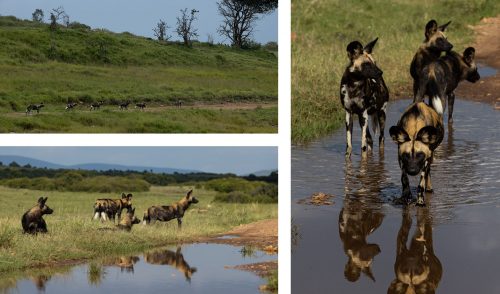
Wild Dog sightings in the Maasai Mara are like urban myths, the stuff of legends. They are so few and far between that stories of dog sightings get passed on from generation to generation. I exaggerate a little; it’s not quite that infrequent, but it’s not far off. Back in the 70’s and 80’s they were much more common but have since nearly disappeared.
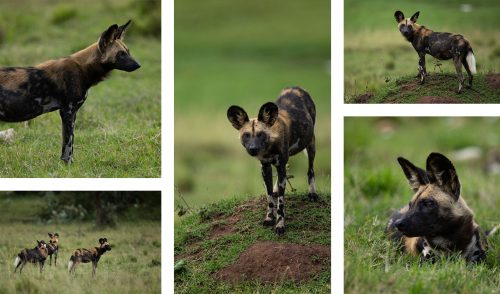
Over the past two months we've heard reports that a pack of seven were starting to be seen with some regularity. I phoned a friend who lives in the northern extremities of the reserve and told him that if he saw the dogs, regardless of time of day, he must call.
He kept his word; the call came during lunch on Saturday and within thirty minutes we were on our way, racing across the Mara. I was literally trembling with excitement.
I have seen wild dogs many times in my career, but always in Southern Africa. To see a wild dog in East Africa is a completely different feeling when you know the hardships they are up against purely to survive. If it’s not the abundant lion prides, or the massive clans of hyenas, it’s the feral dogs, the canine-distemper, the rabies, the mange, the human growth and the poisoning – every odd is truly stacked against them.
We spent over two hours with the pack; and if it wasn’t for the setting sun I would never have left. I wish nothing but the best for these dogs. It really is hard to explain the importance that those seven individual animals have on the potential resurgence of a species. If I could, I would wrap them up in cotton wool forever; but then again, that wouldn’t make them wild dogs, would it?
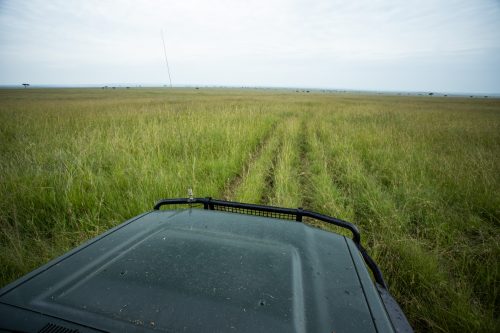
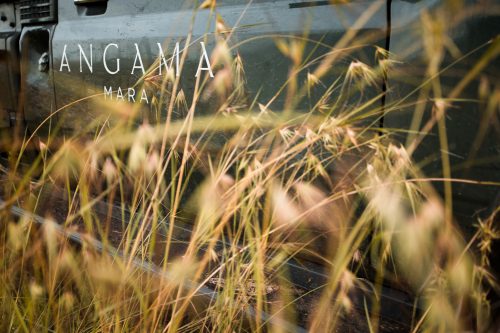
It was impossible for any of the other sightings from the week to compare with the wild dogs for me, but it still was an absolute gem. Yes, the Mara is wet and the grass long. But, wow is it absolutely beautiful.
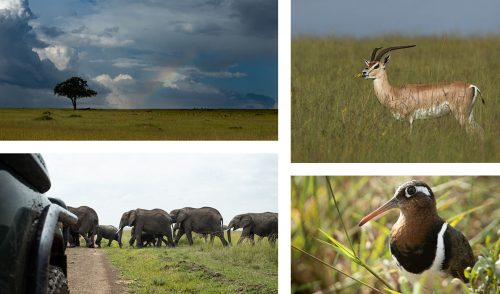
My advice to anyone photographing in the Mara during this time of year is to embrace the grass. Let it work for you as part of your imagery. Use the remarkable golden afternoon light, the dramatic misty mornings, the verdant green grasslands, and the fluffy clouds.
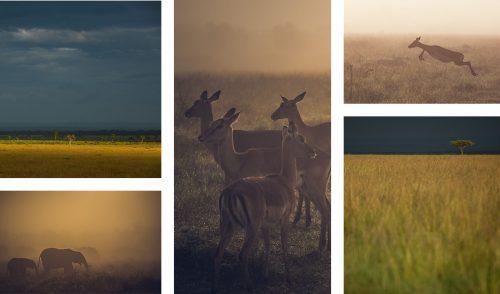
Enjoy the lack of cars driving around and welcome this aspect into your photography. Switch out the big long lens for something wider. . . Soak in the silence, and pay attention to the landscape – this is when the Mara is at its prettiest.
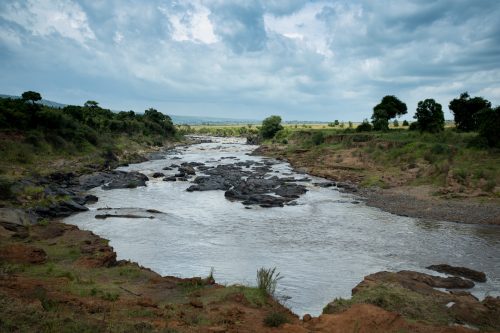
Rain is currently quite localised across the Maasai Mara. Even though the grasslands are flooded, the Mara River, which has its water catchment in the Mau Forest, is actually not as high as it has been in previous months.
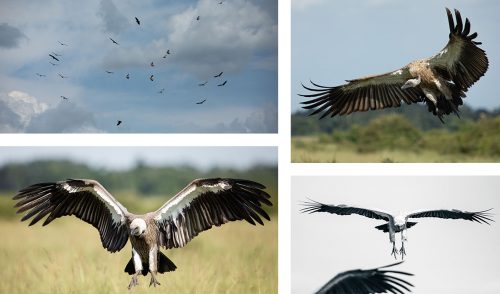
Of course, no week in the Mara is without some drama. A hippo lost a fierce battle with a counterpart and died far from the safety of the river. By the time we found it there were over a hundred vultures circling, diving and feeding. Hyenas were quick to the scene and made a rather disgusting effort to enter the carcass through the rear.
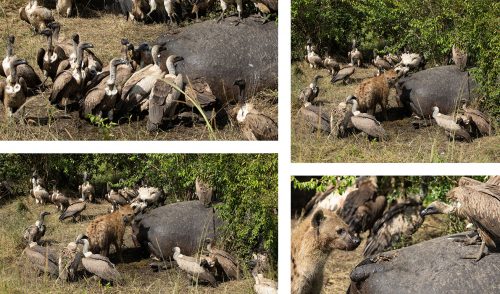
Twelve hours later, we returned to the carcass and could not believe the skeletal remains of such a massive animal. It was almost as if its thick hide had been stripped off its frame.
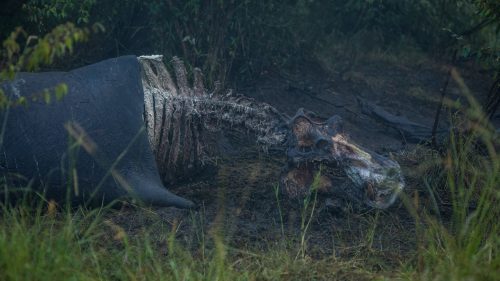
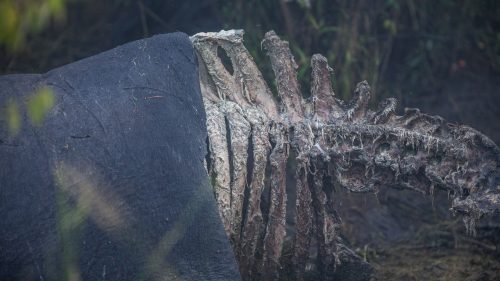
Fat hyenas lay satiated with dried blood caked over their faces, nearby trees were decorated with vultures, and in the distance a male lion marched through the grass. A solitary hyena looked on from a distance – wrapped up in the most exquisite light.
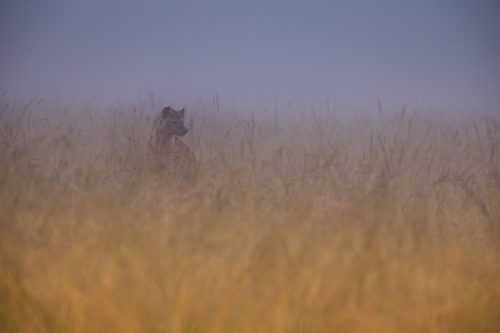
This is the Maasai Mara.
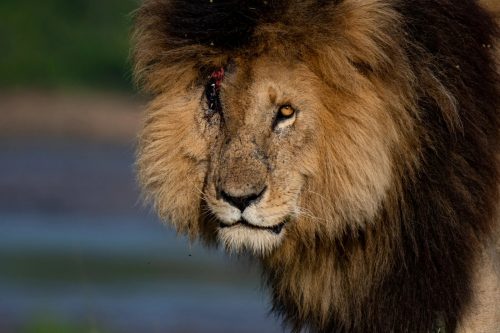
It has been many a month since I last saw Scar, but reports are that he is still going relatively strong, for a lion of his age. This Week Two years Ago Jeff Thige had the most special of sightings of this icon. You just never know when, and where, he may turn up next.
Filed under: This Week at Angama
Subscribe for Weekly Stories
Comments (0):
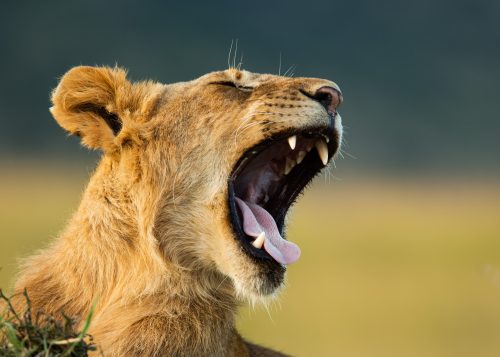
Angama Safari Offers